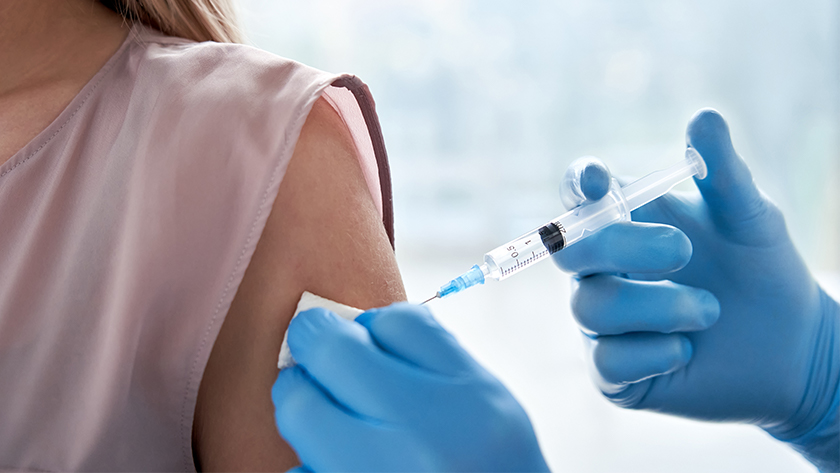
The vaccines developed for COVID-19 have been immensely successful in preventing infection and symptomatic disease. However, their distribution and administration has been, and continues to be, limited by supply.
In March 2021, Canada’s advisory committee on vaccines recommended that the interval between first and second doses be extended from three weeks to up to four months. This strategic recommendation aimed to accelerate the proportion of Canadians receiving their first dose in the face of vaccine shortages.
At the time, the effects of changing the dosing interval were not well understood. A new study in Nature Immunology from the Toronto General Hospital Research Institute and Ajmera Transplant Centre led by Clinician Investigator Dr. Deepali Kumar and Senior Scientist Dr. Atul Humar shows that extending the dosing interval for the Pfizer-BioNTech vaccine not only maintains but actually enhances the vaccine’s ability to trigger immune responses.
The study examined the effects of the interval between doses in 93 health care workers who received the Pfizer-BioNTech vaccine. Participants received their second dose after either a short interval (i.e., three to six weeks) or a longer interval (i.e., eight to 16 weeks). “Because health care workers were prioritized for vaccination and many of them were able to receive their doses according to the original schedule, they were an ideal population for our study,” says Dr. Humar.
One month after the health care workers had received their second shot, blood work was done to assess the concentration of neutralizing antibodies—molecules produced by the immune system that target the SARS-CoV-2 virus and prevent it from infecting cells.
While all participants had robust antibody levels, the individuals who received their second vaccine after the longer interval had higher antibody levels.
To determine how effective these antibodies were at neutralizing the virus, the researchers mixed the participants’ antibody samples with live SARS-CoV-2 virus. They found that samples from the group with the longer vaccination interval could neutralize more virus versus individuals with the short vaccination interval. These findings were consistent for the original virus as well as its Alpha, Beta and Delta variants.
“The findings show that Canada’s strategy for delaying the second dose was likely quite helpful in fighting against COVID-19 variants. This will inform ongoing vaccination efforts, especially within the many regions around the world that are still waiting for access to vaccines,” says Dr. Kumar. “We are also continuing to track our study participants to investigate long-term differences in immunity.”
This work was supported by the Public Health Agency of Canada via the COVID-19 Immunity Task Force, Avant Mutual, the Canadian Society of Transplantation, the UHN Ajmera Transplant Centre and the UHN Foundation.
Hall VG, Ferreira VH, Wood H, Ierullo M, Majchrzak-Kita B, Manguiat K, Robinson A, Kulasingam V, Humar A, Kumar D. Delayed-interval BNT162b2 mRNA COVID-19 vaccination enhances humoral immunity and induces robust T cell responses. Nat Immunol. 2022 Feb 3. DOI: 10.1038/s41590-021-01126-6.

Drs. Atul Humar (L) and Deepali Kumar (R) are co-senior authors of the study. Dr. Kumar is a Clinician Investigator at Toronto General Hospital Research Institute ([no-lexicon]TGHRI[/no-lexicon]); Dr. Humar is a Senior Scientist at TGHRI.

Drs. Victoria Hall (L) and Victor Ferreira (R) are co-principal authors of the study. Dr. Hall is a clinical fellow at Toronto General Hospital; Dr. Ferreira is a scientific associate at TGHRI.




